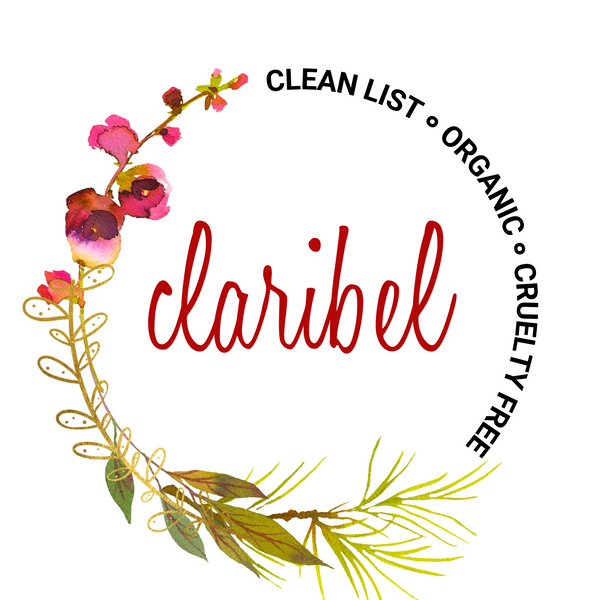
Vegan Skincare for Sensitive Skin: Myths, Tips and Ingredients to Avoid
Sensitive skin requires special care and attention due to its tendency to react to various environmental factors and skincare products. If you have sensitive skin, you know how challenging it can be to find suitable products that won't cause irritation or redness. That's where vegan skincare comes in. In this section, we will explore what sensitive skin is and why it requires a different approach to skincare.
Sensitive skin is characterized by its heightened reactivity to certain stimuli, such as sun exposure, harsh weather conditions, or certain ingredients found in skincare products. People with sensitive skin often experience redness, itching, and dryness. The first step in managing sensitive skin is understanding its unique needs.
When it comes to vegan skincare for sensitive skin, vegan products can be a game-changer. Vegan skincare is free from animal-derived ingredients and by-products, making it a safe and gentle option for those with sensitive skin.
Vegan products are also often formulated with natural ingredients, which are less likely to cause irritation. By choosing vegan skincare, you can avoid potential allergens and irritants that may be present in non-vegan products.
Why Choose Vegan Skincare for Sensitive Skin?
There are several reasons why vegan skincare is an excellent choice for sensitive skin.
#1: Vegan skincare products are free from common irritants that can trigger reactions in sensitive skin. Ingredients such as artificial fragrances, sulfates, and parabens are often found in non-vegan products and can cause irritation. Vegan skincare eliminates these potential irritants, making it a safer option for sensitive skin.
#2: Vegan skincare is often formulated with natural ingredients that are gentle and nourishing to the skin. Ingredients like aloe vera, chamomile, and jojoba oil are known for their soothing properties and can help calm irritated skin. Vegan products also tend to be rich in antioxidants, which can protect sensitive skin from environmental stressors and promote a healthy complexion.
#3: Choosing vegan skincare is not only beneficial for your skin but also for the environment. Vegan skincare products are cruelty-free, meaning they are not tested on animals. By opting for vegan skincare, you can make a positive impact by supporting brands that prioritize ethical and sustainable practices.
Essential Tips for a Vegan Skincare Routine
Now that you understand the importance of vegan skincare for sensitive skin and the irritants to avoid, it's time to dive into some essential tips for creating a vegan skincare routine that caters to your skin's unique needs.
Patch test new products: Before incorporating a new skincare product into your routine, always perform a patch test. Apply a small amount of the product to a small area of your skin, such as the inside of your wrist, and observe for any adverse reactions for at least 24 hours. If no irritation occurs, it is safe to use the product on your face.
Keep it simple: When it comes to sensitive skin, less is often more. Stick to a simple skincare routine with a gentle cleanser, moisturizer, and sunscreen. Avoid using too many products or overloading your skin with active ingredients, or at least very slowly incorporate and test new items, like masks, scrubs, and acid treatments. Your skin can be conditioned to handle more, but patience and testing is the key.
Moisturize diligently: Hydration is key for sensitive skin. Look for a vegan moisturizer that is lightweight, non-comedogenic, and free from potential irritants. Apply moisturizer twice a day, after cleansing, to lock in moisture and protect your skin's barrier.
Protect your skin from the sun: Sunscreen is essential for everyone, but especially for those with sensitive skin. Opt for a vegan sunscreen with broad-spectrum protection and an SPF of 25 or higher. Remember to reapply every two hours when exposed to the sun.
Listen to your skin: Pay attention to how your skin reacts to different products and adjust your routine accordingly. If you notice any signs of irritation or discomfort, discontinue use of the product and consult a dermatologist if necessary.
By following these essential tips, you can establish a vegan skincare routine that caters to the specific needs of your sensitive skin.
Vegan Skincare Myths Debunked
There are several myths and misconceptions surrounding vegan skincare that may deter people from trying it. In this section, we will debunk some of the common myths and shed light on the truth behind vegan skincare.
Myth #1: Vegan skincare is less effective than non-vegan skincare.
Truth: Vegan skincare (even formulated for sensitive skin) can be just as effective, if not more so, than non-vegan skincare. Many vegan products are formulated with potent plant-based ingredients that offer numerous benefits for the skin. Natural ingredients like shea butter, rosehip oil, and green tea extract can provide hydration, antioxidants, and anti-aging properties, without the need for animal-derived ingredients.
Myth #2: Vegan skincare is expensive.
Truth: While some vegan skincare brands may have higher price points, there are also budget-friendly options available. It's all about finding the right products that suit your budget and skincare needs. Additionally, investing in quality skincare products can save you money in the long run, as they can prevent skin issues and promote overall skin health.
Myth #3: Vegan skincare is only for vegans.
Truth: Vegan skincare is suitable for everyone, regardless of their dietary choices. Vegan skincare focuses on the ingredients used in the formulation, rather than who is using it. Whether you follow a vegan lifestyle or not, you can benefit from using vegan skincare products that are gentle, ethical, and effective.
By debunking these myths, we hope to encourage more people to explore the world of vegan skincare and discover its benefits for sensitive skin.
Common Irritants to Avoid
When it comes to sensitive skin, it's crucial to avoid certain ingredients that can aggravate and irritate the skin. In this section, we will discuss some common irritants found in skincare products and why they should be avoided.
Beeswax: Beeswax is produced by bees to make the honeycomb. They produce this to protect their young and store their honey until they need food, in the winter or during a drought. In larger beekeeping operations, the bees are exploited for pollination and honey. They are subjected to pesticides that weaken their immune systems and make them susceptible to illness and death.
Beeswax is commonly used in body balms, lip balms and some mascaras to keep certain ingredients from separating. Vegan alternatives to Beeswax are plant and soya waxes, such as Candelilla Wax (from the leaves of the candelilla shrub), which can be found in our lip balms.
Shellac: Shellac is a resin that is obtained from female lac bugs when they secrete which they are killed for. It's shocking and so sad that companies that use shellac, are able to justify killing thousands of these vulnerable insects AND for such a small amount of product. Commonly used in all shellac nail products. A vegan alternative to Shellac would be a protein called Zein, which is found in Maize.
Glycerin (that is not plant derived): Glycerin can be obtained from both plant and animal sources so be sure to read the label and be sure that it’s vegan derived. Animal derived glycerin is a protein found in ground up horns, hooves, feathers and the hair of animals. We use vegan glycerin in our products.
Lanolin (that is not plant derived): Lanolin is a wax taken from the glands of sheep and other animals with wool. It is most commonly used to prevent the loss of moisture from our skin and so is found in a lot of common products, such as moisturizing creams and lotions. Some good vegan alternatives to lanolin would be coconut oil, olive oil, or jojoba oil.
Carmine: Carmine is an ingredient that is commonly used as a red pigment. It is taken from the shells of the female Cochineal insect, which are killed during the process.
Casein: This is derived from cow's milk. It it found in mainstream moisturizing and conditioning products for hair and face.
Squalane (that is not plant derived): Squalane can be either extracted from shark liver oil or from plant sources, so again, be sure when reading the label. We use olive squalane, which is in our opinion the best version available. It can also be derived from wheat germ oil. Vegan squalane is becoming more and more popular so it’s likely you’ll find it more readily available.
Guanine: Guanine is a crystalline material obtained from fish scales. This is commonly used in nail polish, eyeshadow, bronzers or products that want to produce a shimmery effect. A vegan alternative to Guanine is mica and certain legumes.
Oleic Acid (that is not plant derived): Oleic Acid is made from animal fat or tallow and helps to thicken formulas. It is commonly found in nail varnishes, soap and moisturizers. Vegan alternatives to Oleic Acid can be made from plants such as coconut, olives and nuts.
Consider our Firming & Lifting Anti Aging Serum, free of chemicals and synthetics and full of skin loving ingredients to help you on your skin care journey.
Silk Powder: This is obtained from silk worms, they are horrifically boiled in their cocoons to obtain the silk. It is used in mainstream skin care, facial powders, soap and deodorant. A vegan replacement to silk powder is arrowroot powder.
Stearic Acid: Stearic Acid can be derived from pigs, cows and sheep's stomachs and is best known as animal fat. It is commonly found in deodorants, soaps, hair and moisturizers. The vegan alternative to stearic acid is derived from coconut.
Collagen: This animal derived version of this ingredient is taken from animal tissue, bone, skin, or ligaments (often found in cows). The vegan derived version has been prove just as or more effective and is readily common in the skin care market.
Keratin: This naturally occurs in the hair and horns of animals. It is used in products to strengthen nails and hair. Vegan alternatives to Keratin are amino acids. These can be found in nut and berry oils such as, almond oil, avocado oil and sea buckthorn oil.
Lactic Acid: We offer a superb vegan derived lactic acid in our products, but traditionally lactic acid has been derived from animals and found in their blood and muscle tissue. It is commonly found in skincare products that are intended to improve the overall look and feel of the skin. The vegan version that you can commonly find now (read the label) naturally occurs during the fermentation process of plants or can be man-made using plants.
Consider our Firming & Lifting Anti Aging Serum, free of chemicals and synthetics and full of skin loving ingredients to help you on your skin care journey:
Conclusion
In conclusion, vegan skincare is an excellent choice for those with sensitive skin. By understanding the unique needs of sensitive skin and avoiding common irritants, you can create a skincare routine that promotes a healthy and calm complexion. Vegan skincare offers a wide range of products formulated with gentle and nourishing ingredients, making it a safe and effective option for sensitive skin.

